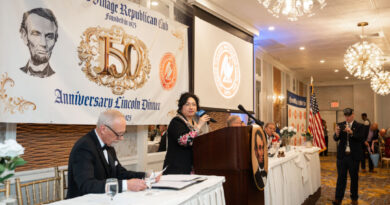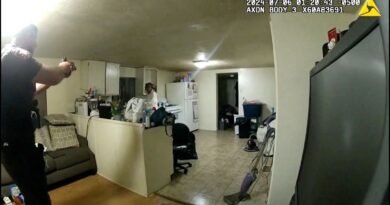TikTok Requests Supreme Court Intervention to Stop Divestment Law

Recently, the U.S. Court of Appeals for the D.C. Circuit dismissed a similar appeal.
The social media platform TikTok is seeking a temporary injunction from the Supreme Court to suspend a law that mandates its parent company, ByteDance, to divest the platform by January 19, 2025, or stop operations in the U.S.
In its emergency petition to the Supreme Court, TikTok requested that the justices make a ruling by January 6, 2025, to determine whether to suspend the law.
If the law is put on hold, the court may subsequently consider the case in more depth.
TikTok’s application proposed that the court explore the question of whether the Act is unconstitutional as it uniquely prohibits both TikTok Inc. and ByteDance Ltd. from running the TikTok platform and other applications in the U.S.
TikTok argued to the Supreme Court that an interim injunction against the law was fitting, especially considering the imminent transition to the administration of President-elect Donald Trump.
“There is a reasonable possibility that the new Administration will pause enforcement of the Act or otherwise work to lessen its most severe potential impacts,” TikTok wrote to Chief Justice John Roberts.
On the day TikTok submitted its request to the Supreme Court, Trump held a press conference where he expressed his support for the platform.
“We’ll examine TikTok,” he mentioned, sharing that he has a “warm spot” for the app due to its influence on youth support during the election.
The law’s deadline of January 19, 2025, coincides with the day before Trump’s inauguration on January 20.
However, Trump has previously labeled TikTok as a national security risk.
The DOJ cited in a recent filing that “TikTok’s ongoing operations in the United States under its current ownership present significant risks to national security due to TikTok’s data collection practices and the covert intelligence efforts of the Chinese government.”
Conversely, TikTok informed the Supreme Court there is “no imminent threat to national security,” stressing that Congress itself has postponed implementation.
TikTok urged the Supreme Court to take action by January 6 “to allow app stores and internet hosting providers sufficient time to adjust their operations ahead of January 19.”
The House Select Committee on the Chinese Communist Party has communicated with Apple and Google regarding the D.C. Circuit’s ruling, particularly concerning mobile app stores.
“Without a qualified divestiture, the Act renders it illegal to ‘[provide] services to distribute, maintain, or update such foreign adversary controlled application (including any source code of such application) via a marketplace (including an online mobile application store) through which users within the land or maritime borders of the United States may access, maintain, or update such application,’” states one of the letters.
On December 13, the D.C. Circuit confirmed its rejection of TikTok’s motion to pause the law while awaiting Supreme Court review.
TikTok has highlighted its significant user base in the United States, stating to the Supreme Court that “the law will strip TikTok’s 170 million monthly American users and creators of access to one of the nation’s most widely used platforms for speech, decimate TikTok’s ability to attract advertisers, and jeopardize its capacity to recruit and retain talent.”
Catherine Yang and Andrew Moran contributed to this report.



